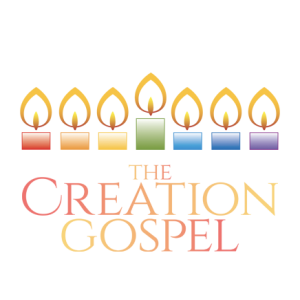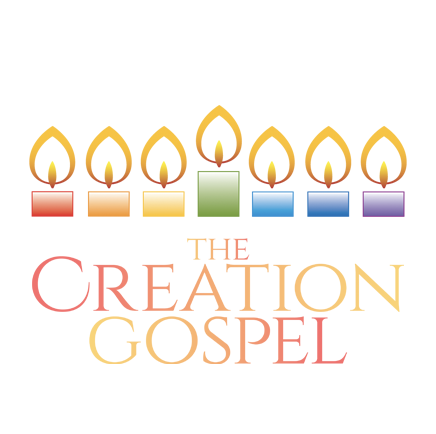Episodes

Monday Oct 23, 2023
Monday Oct 23, 2023
|
The carnage of October 7th is very much on our minds, shredding the places in our soul that are knit together with the deceased and those held hostage. While those in the Land of Israel have specific things they can do, such as serve in the army, prepare support supplies for the troops, or guard the home neighborhood, those of us outside the Land feel helpless. Of course, no matter what other supportive things we may find to do, the most important thing we can do is pray.
When we compare it to taking up a weapon or preparing a real meal for a soldier, prayer can feel a little less important or useful. It is, however, the most powerful thing one can do in the face of adversity, especially adversity and horror beyond one’s strength or even ability to understand.
In our Footsteps of Messiah series, we’ve been taking a close look at the Song of Songs, and our current text is from Chapter Four:
Your neck is like the tower of David, built with layers of stones on which are hung a thousand shields, all the round shields of the warriors.
The shields each represent a generation of the righteous remnant, warriors in their generation. They have protected the Covenant in their generation, not simply through taking up arms, but there were also spiritual warriors of prophecy, prayer, evangelism, worship, teaching, hospitality, rearing Godly children, and so on. They engaged the spiritual service of their generation, understanding that it was built upon the foundation of the shields of previous generations, and their generational shield would form a foundation for the next. The shields of the promise to a thousand generations are a testimony that there should never be such a thing as a “generation gap,” for each generation needed the previous generations’ work upon which to build. As a review, here was the comment from the Midrash Rabbah to the Song of Song on this verse:
Each mighty warrior in his or her time is a hero! And each generation is connected to those that preceded it and those who will follow it. Although we know we can be an influence in our own generation, is it possible that something we do today could even affect a PREVIOUS generation? Can we do something today that would honor the deceased without edging into the forbidden area of ancestor worship/idolatry? Although many fell on October 7th, is there something we can do even now to benefit them?
Orthodox Jews have a practice of praying the Mourner’s Kaddish (a way of saying, like Job, “the Lord gives, and the Lord takes away; blessed be the Name of the Lord”), an acknowledgment of the sovereignty of Adonai over all things pertaining to life and death. “The LORD kills and makes alive; He brings down to Sheol and raises up.” (1 Sa 2:6)
Let’s take a look at a curious statement that Paul wrote to the Corinthians. Paul, a Pharisee, may have been referring to the Jewish practice of children doing good deeds and praying for deceased parents, perhaps the ancient origin of the modern Mourner’s Kaddish. Pharisees believed in the resurrection, while Sadducees did not. Paul wrote:
Oddly, Paul seems to take for granted that those who are raised from the dead can benefit from a specific action taken on their behalf by a living person, namely, immersion, a mikveh. For those unfamiliar with the mikveh, it is the practice from which Christian baptism derived. While Christians are baptized in the name of Yeshua to signify their new life and salvation, there are many additional reasons to be immersed, including various purity rituals, preparation for feasts, etc.
Now clearly we do not believe a human beings’ actions can save another human being’s soul after death. As the verse in 1 Samuel stated, only YHVH can kill or resurrect. The father cannot ”save” the son, for Abraham could not make Ishmael live before El Shaddai, nor could Isaac save Esau, and a man cannot save his brother (Psalm 49:8):
Is there anything in the Torah that may have led Paul to believe that a living human being could do something to benefit the deceased? One of the strangest instructions in the Torah is the levirate marriage. If a man dies childless, one of the deceased man’s brothers may marry his widow and raise up a child to bear the deceased man’s name.
If life was over, then how can a child not fathered by the deceased do something to improve the “life” of the deceased, which was cut short? Levirate marriage hints that a son’s life is directly tied to a deceased father’s name, an extension of it. What would it matter if he is deceased without hope? Definitely puzzling. Good deeds cannot be “worked” after we die, only before.
Perhaps this is the link between generations. Yeshua used the example of Abraham, Isaac, and Jacob to teach resurrection from the dead to the unbelieving Sadducees. He quotes to prove that the righteous souls of the patriarchs and matriarchs of Israel still live:
Although we cannot save or resurrect another human being, one’s offspring are evidence of the faithful lives of the parents. One’s offspring are the ones most willing to do good deeds and prayer to the enrichment of the father’s (and mother's) afterlife. They are proof that the deceased fulfilled his calling as a shield in their generation.
While good deeds cannot save us, they do FOLLOW us into the Kingdom (Re 14:13), where no more “work” may be done. They can enrich our eternal lives, for they are evidence of faithfulness. When the deceased can no longer do heartfelt good deeds for the sake of Heaven, who can?
Their descendants.
Even those who may not be their literal children, for in the case of the levirate marriage, the child is not the literal child of the deceased, but “fostered” by a near relative in the good name of the deceased. This is why the one who raises up a child for a deceased brother is so generous. The good deeds the child does are credited to his deceased brother’s eternal life enrichment, not his own, although I suspect the levirate father is also rewarded appropriately. We may apply the principle and even take children under our wings to nurture and mentor in the Word who are not ours by blood, but as spiritual fathers and mothers, such as Paul was to Timothy.
If the righteous deeds of the living are built on the faithfulness of previous generations, then it stands against popular narratives that there was nothing good to be learned or built on from the faith of those who came before. Many of this generation see themselves as saviors of the world, the only virtuous generation, ignoring the sacrifices and steady progress of the righteous remnant, shields who have walked the world back from the brink of the Flood and Babel, built the Kingdom of Heaven by faith.
No generation is independent of another even though it is unique. Each generation should live in honor of those who went before, understanding that they are the living evidence of the faithfulness of Yeshua, the one who came for a thousand generations, and proof of the righteous remnant in each generation. The deceased share in the loving acts of devotion to the Father’s Word, for without the deceased, there was a missing link.
So yes, there is something we can do both for the deceased and the hostages, those on the front lines, and even for the righteous remnant of every previous generation. Prayer is a good deed. Obeying the Word is a good deed. Loving one another is a good deed. Comforting the dead with our obedience is a good deed. Those deeds follow into the Kingdom. Imagine if the rich man in Yeshua’s parable had seen his living brothers repentant, praying, obeying the Word, being hospitable and charitable to the poor and sick. That’s one torture he would not have needed to endure: that of seeing loved ones repeating mistakes of disobedience.
Praying is powerful. Good deeds of obedience to the Word are evidence that the lives of the deceased matter. Not did matter, still matter. Their lives influenced those who survived to serve Adonai with a humble heart. What greater thing could you do to honor their memories? What greater thing could you do to comfort them as they await the resurrection of their bodies? What greater thing could you do to comfort their families? Live the righteous years of their lives that were cut short.
Mourner’s Kaddish in English
Glorified and sanctified be God’s great name throughout the world which He has created according to His will.
May He establish His kingdom in your lifetime and during your days, and within the life of the entire House of Israel, speedily and soon; and say, Amen.
May His great name be blessed forever and to all eternity.
Blessed, praised, glorified, exalted, extolled and honored, adored and lauded be the name of the Holy One, blessed be He, beyond any blessings and hymns, praises and consolations that are spoken in the world; and say, Amen.
May there be abundant peace from heaven, and life, for us and for all Israel; and say, Amen.
He who creates peace in His high places, may He create peace for us, and for all Israel; and say, Amen.
|
|
Wars of Kings is a foundation for using the template of the first Exodus to understand the Greater Exodus and the accompanying plagues in the Book of Revelation. Click on Wars of Kings to go to the first segment of the Wars YouTube video. Click Siege to join the Wars livestream at 4:00 pm Eastern on Shabbat.
Please SUBSCRIBE to our newsletter to get new teachings. |


No comments yet. Be the first to say something!